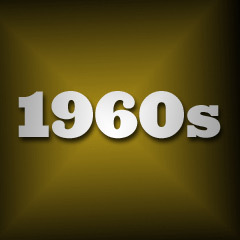
|
![]()
Greatest Films of the 1960s
1960 | 1961 | 1962 | 1963 | 1964 | 1965 | 1966 | 1967 | 1968 | 1969
Title Screen Film Genre(s), Title, Year, (Country), Length, Director, Description 


Alice's Restaurant (1969), 111 minutes, D: Arthur Penn
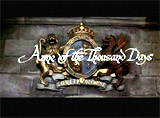


Anne of the Thousand Days (1969, UK), 145 minutes, D: Charles Jarrott
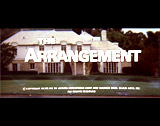

The Arrangement (1969), 125 minutes, D: Elia Kazan
Kazan's introspective, pretentious R-rated soap-opera melodrama (rated as one of his worst films), was based upon his own trashy best-selling 1967 novel. It was a bold, semi-experimental film with some nudity and sexual situations - representative of the very frank and honest films emerging in the late 1960s. It told about the mid-life crisis of middle-aged, rich, controlling LA ad executive Eddie Anderson (Kirk Douglas), a 2nd generation Greek immigrant - né Evangelos. Although unsatisfyingly married to beautiful, nagging loyal and smart-minded Florence (Deborah Kerr), Eddie was engaged in a long-running extra-marital affair with a beautiful mistress, his research assistant. He attempted suicide by deliberately steering his sports car convertible into the undercarriage of a truck next to him on the freeway. After surviving and hospitalization, and refusing to return to work, he subsequently explored and reevaluated his life and how he had squandered his own talent. He attempted to reorganize his contemptuous life - seemingly reduced to a series of perfect "arrangements" (compromises and adjustments) that had destroyed his self-respect. Numerous convoluted flashbacks revealed his affair (resulting in a child) with married, free-spirited mistress Gwen (Faye Dunaway), who had abandoned him a year earlier. She had told him that he had acquired a vacuous, empty soul after selling out himself to acquire a multi-million dollar ad contract with a tobacco company ("Zephyr—the Clean Cigarette!" ads played continually). At one point, she asked: "What you could have been. What happened to you, Eddie? Must kill you to think what you might have been."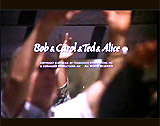


Bob & Carol & Ted & Alice (1969), 104 minutes, D: Paul Mazursky
The fifth highest-grossing film of 1969, and with four Oscar nominations (one was for Mazursky's original screenplay) for Mazursky's directorial debut film. Set against the time period of the late 1960s sexual revolution, this social satire starred two bourgeois couples: documentary film-maker Bob Sanders (Robert Culp) and wife Carol (Natalie Wood), and Ted Henderson (Elliot Gould) and his wife Alice (Dyan Cannon). As a foursome, they experimented with New Age-y openness, enlightenment, therapy, and honesty - and the monogamous couples considered experimenting with swinging (or wife-swapping).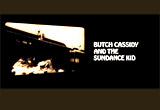


Butch Cassidy and the Sundance Kid (1969), 110 minutes, D: George Roy Hill
Director George Roy Hill's likeably entertaining, charming and amusing revisionist western was actually a comedy/drama and buddy film. It featured the Oscar-winning Best Song "Raindrops Keep Falling On My Head" during a shared bicycle ride. Mixed together were impudent slapstick comedy, conventional Western action, contemporary music, and humorous dialogue to characterize the past and irreverently poke fun at typical western film cliches. It became one of the most-popular, appealing, beguilingly star-driven, tragi-comedy Westerns ever made. The plot was about two charming, legendary, turn-of-the-century, train-robbing outlaws - with comedy, drama, action, a witty script, and two handsome leads, Redford and Newman. The romanticized buddy film told of the friendship and camaraderie shared between the two humorous buddies, who mocked and defied authority and the Establishment. Their characters were loosely based on real-life, legendary outlaws Robert Leroy Parker (Butch Cassidy) and Harry Longbaugh (slick gunslinger The Sundance Kid) and the Hole in the Wall gang in Wyoming in the early 1900s. The film's anti-heroes were free-wheeling, non-chalant Butch (Paul Newman) and sharpshooting Sundance (Robert Redford), both with human fallible traits - their specialty was robbing trains. Their audacious plan was to hit the Union Pacific Flyer twice on successive runs - they'd hit it in one direction and then hit it again on its return trip. During their first attempted robbery, an explosive dynamite charge blew a large hole in the wall of the railroad car, and they made off with the money. In town later, as the Marshal (Kenneth Mars) vainly struggled to raise a posse to go after the gang, Butch and Sundance listened from the second floor balcony-porch of their favorite brothel/saloon (Fanny Porter's), as plans were made to form a posse and pursue them. During a film interlude, both Butch and Sundance paid a visit with Sundance's 26 year-old lover, prim but beautiful schoolmarm Etta Place (Katharine Ross). Their second robbery of the Union Pacific Flyer was less successful than the first. They used too much dynamite to open the reinforced safe and the tremendous blast blew pieces of paper money into the wind - Sundance laughingly joked: "Think you used enough dynamite there, Butch?" Before the gang could gather up the money, a formidable Superposse of a half-dozen men on horseback swiftly exited from the side of the boxcar pulled by another locomotive - Butch sensed trouble and warned: "Whatever they're sellin', I don't want it!"; soon after, Butch and Sundance realized that they were being relentlessly pursued by the mysterious posse. Butch asked: "What's the matter with those guys?" Butch became worried as they were tracked: "I couldn't do that. Could you do that? How can they do that?" Butch repeatedly asked the question: "Who are those guys?" After temporarily evading the posse, the two outlaws retreated to Etta's place, and decided to high-tail it to South America (Bolivia) ("Wherever the hell Bolivia is"), believing it would be easy and safe living there, and they could seek further wealth and better luck. Soon after following a brief stop-over visit to NYC, the trio boarded a steamer to South America. The dapper-dressed trio stepped off a Bolivian train in a country village. The group (after learning some Spanish words) conducted a series of successful, clever and amusing heists, as Etta assisted them, while their outlaw reputation revived their status as hunted criminals. For a short while, they reformed and went "straight," serving as payroll guards for a mining company to protect the transport of gold shipments from "payroll thieves," and were employed by old prospector Percy Garris (Strother Martin). Sundance realized that their efforts to go straight had failed, and that the job proved more violent than robbing banks. Knowing that their days were numbered, Etta decided to return to the U.S. ahead of them. With Etta gone, the two offbeat outlaws resorted to their old ways - robbing a payroll mule train, but the Bolivian constabulary - including a whole regiment of hundreds of Bolivian cavalry - was alerted to their presence. In the final sequence, the surrounded, wounded and doomed heroes, Yanqui banditos, joked and daydreamed: ("For a moment there, I thought we were in trouble") and then were caught at the point of death in a freeze-framed, blazing hail of bullets shootout in Bolivia (turning from color to sepia-toned), reminiscent of Bonnie and Clyde (1967). The ending of their fateful last stand mythologized and immortalized the two outlaw heroes for posterity.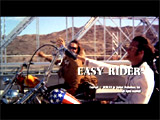



Easy Rider (1969), 94 minutes, D: Dennis Hopper
Widely considered a generation-defining, youth-oriented classic, Dennis Hopper's low-budget road film still engrosses those who remain nostalgic for 60's era wanderlust - seeking inspiration for the next road trip. Two motorcyclist biker outlaws (drug-dealers) (Peter Fonda, Dennis Hopper) embarked on a coast-to-coast odyssey across America in this landmark counter-culture road drama/travelogue, searching for the 'real' America. The film classic provided a scenic tour of parts of historic Route 66. Much of the early portion of their eastward odyssey was seen behind the opening credits, to the tune of Steppenwolf's 'Born to Be Wild.' The two drug-dealing motorcycling heroes began their journey in the dusty Death Valley desert of Ballarat, CA, then crossed the Colorado River and cruised to Flagstaff, AZ, then north through the Painted Desert to Monument Valley. In the Southwest, they encountered wide open spaces, hippies in a northern New Mexico commune, skinny-dipping in a Rio Grande River gorge near Taos, a parade in the tiny frontier town of Las Vegas, NM, small-town rednecks and paranoia, drugs, and a drunken, jailed lawyer (Jack Nicholson). When they arrived for Mardi Gras in New Orleans, they found sex in a bordello, a psychedelic trip in a graveyard, and a violent end outside of Baton Rouge. This often-imitated but never-duplicated movie defined a generation and has the greatest 60's soundtrack (featuring The Byrds, The Band, Steppenwolf, Jimi Hendrix, The Electric Prunes, and more). Made for $375,000, it went on to make multiple millions and change the pop culture landscape forever.

Fellini Satyricon (1969, It./Fr.) (aka Satyricon), 138 minutes, D: Federico Fellini
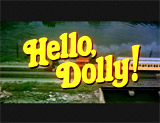

Hello, Dolly! (1969), 129 minutes, D: Gene Kelly
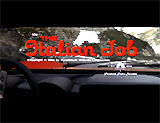



The Italian Job (1969, UK), 99 minutes, D: Peter Collinson
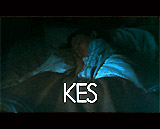

Kes (1969, UK), 110 minutes, D: Ken Loach
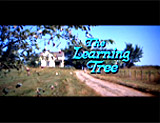

The Learning Tree (1969), 107 minutes, D: Gordon Parks
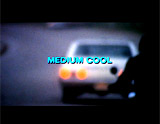

Medium Cool (1969), 110 minutes, D: Haskell Wexler
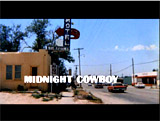



Midnight Cowboy (1969), 119 minutes, D: John Schlesinger
John Schlesinger's exceptional, provocative, gritty buddy film about the development of an unlikely friendship was also a poignant, downbeat, and tragic drama by its conclusion. Once-controversial because it was originally rated X, this adult-oriented, Oscar-winning Best Picture film was made on location in New York to portray seediness, corruption, and big-city anonymity. Based on James Leo Herlihy's novel, its title 'midnight cowboy' actually referred to a male hustler or gigolo. It provided a searing portrait of a naive, small-town Texan Joe Buck (Jon Voight), a slow-witted, young pretty-boy blonde, who transplanted himself to NYC. He had saved up his funds from his lowly dishwashing job in Texas to buy a cowboy outfit and journey by bus to the big city - with a small suitcase. He unexpectedly was very unsuccessful as an opportunistic male prostitute-gigolo in Manhattan, due to his naivete and easy victimization. His first main trick was a professional hooker named Cass (Sylvia Miles) who expected Joe to pay her! Out of necessity, he was forced to befriend slimy, tubercular, limping, homeless, petty thief and con artist Enrico "Ratso" Rizzo (Dustin Hoffman in his 2nd important role following The Graduate (1967)), the film's anti-hero. The two established interdependent bonds of love and trust in the big city, both hoping for a better life elsewhere. The unglamorous, sickly Rizzo bonded with the disillusioned drifter and together they struggled to live a marginalized existence in American society. They lived together in a deserted (and condemned) tenement under primitive conditions. Rizzo's dream of paradise was to become lucky and rich, and start a new life in sunny Florida, where his health could be restored. Street-smart Rizzo was a scam-artist who knew how to survive, but with the coming of the brutally-cold winter, Joe realized that they needed to raise enough money to escape South. Joe was beginning to have some successes as a gigolo, beginning with socialite Shirley (Brenda Vaccaro). However, he also had a few sordid run-ins and further bad luck with a non-paying client, and was compelled to beat up a middle-aged homosexual in his hotel room named Towny (Barnard Hughes). With enough money to buy two bus tickets to Florida, Joe and Rizzo finally set out, but due to his failing health, Rizzo tragically died on the bus as they approached the outskirts of Miami.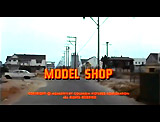
Model Shop (1969, Fr./US), 95 minutes, D: Jacques Demy
This was the only American feature by French auteur Jacques Demy - a poignant and downbeat drama about a transitory romance and dislocated protagonist in the late 1960s - with the intriguing dreamlike tagline: "Maybe Tomorrow. Maybe Never. Maybe." The film followed 24 hours in the life of directionless, alienated, idealistic and unemployed 26 year-old Los Angeles resident George Matthews (Gary Lockwood), an architect by training. The aimless Angeleno was on the verge of receiving a draft notice and being shipped off to the Vietnam War. Dissatisfied and in a loveless relationship with long-time, dim-witted live-in girlfriend, aspiring blonde actress-model Gloria (Alexandra Hay) (who would soon move out), George also was struggling to raise $100 for his creditors to prevent his vintage MG sports car convertible from being repossessed. He became infatuated with Frenchwoman Cecile (stage-named Lola) (Anouk Aimée), elegantly dressed entirely in white, and at first silently followed her. He learned she was a divorced, world-weary transplanted (and stranded) Parisian who worked in a tawdry "model shop" storefront where patrons rented cameras to take erotic photos of scantily-clad lingerie models - and spent his last $12 to photograph her (for 15 minutes). Her plan was to raise money to return to Paris and her 14 year-old son. After a brief one-night stand and their tenuous passionate connection, he and Lola parted ways, with little possibility of escaping or finding freedom from their circumstances.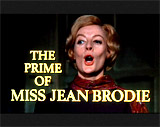



The Prime of Miss Jean Brodie (1969, UK), 116 minutes, D: Ronald Neame
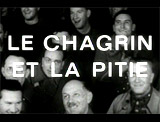

The Sorrow and the Pity (1969, Fr./Switz./W.Germ.) (aka Le Chagrin et La Pitié), 251 minutes, D: Marcel Ophüls
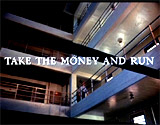

Take the Money and Run (1969), 85 minutes, D: Woody Allen
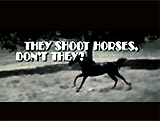

They Shoot Horses, Don't They? (1969), 129 minutes, D: Sydney Pollack
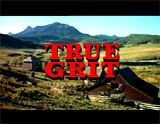

True Grit (1969), 128 minutes, D: Henry Hathaway
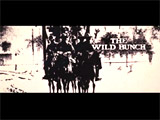

The Wild Bunch (1969), 145 minutes, D: Sam Peckinpah
A controversial, brutally-violent, late 60s Western about the demise of a desperate, small gang of aging outlaws in the early 1900s that still clings to codes of honor, loyalty, and courage. Pike Bishop (William Holden), leader of the 'wild bunch,' is hired for their final job. In the stunning opening sequence, the gang - disguised as US Cavalry soldiers, ride into a Texas town and rob the railway office's bank. The boss of the railroad hires a mercenary, bounty-hunting posse, led by Pike's former buddy Deke Thornton (Robert Ryan) to pursue them, as the gang flees into Mexico, during the revolution of 1914. They are double-crossed by an anti-revolutionary dictator/Generalissimo Mapache (Emilio Fernandez) after the hijacking of weapons from a US ammunitions train. Attempting to redeem themselves by opposing an entire corrupt Mexican platoon, they are massacred in the famous, ultra-violent, slow-motion, colorful bloodbath finale.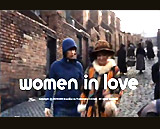




Women in Love (1969, UK), 131 minutes, D: Ken Russell
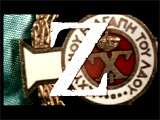
Z (1969, Fr./Algeria), 128 minutes, D: Costa-Gavras